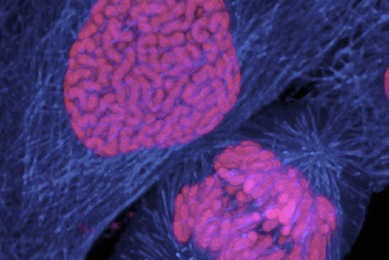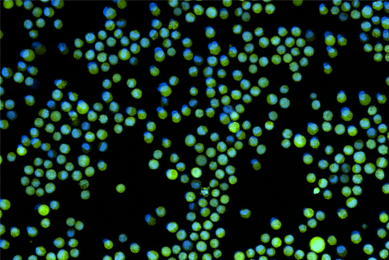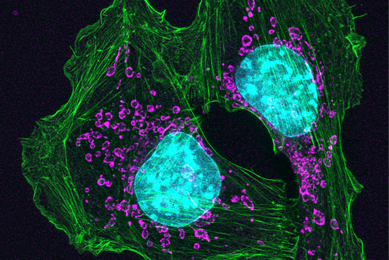Why it’s important
Because kidneys play a vital role in numerous bodily functions such as filtering blood and eliminating waste products from the body through urine, kidney illnesses like cancer can lead to significant health consequences or death. There are various known types of kidney cancer; of these, renal cell carcinoma (RCC) is the most common and accounts for 90% of all cases. RCC globally affects over 400,000 individuals every year, and up to one third of those affected will have metastatic disease.2-4 The prognosis of this type of cancer greatly depends on the response to therapeutics and the stage at the time of diagnosis.2
RCC is a heterogenous disease with several recognized histological subtypes.2 Clear cell renal cell carcinoma, which is the most prevalent subtype, affects 7 out of 10 people with RCC. Non-clear cell renal cell carcinoma is another type, with two subtypes known as papillary renal cell carcinoma (1/10 RCC) and chromophobe renal cell carcinoma (5/100 RCC). Aside from that, there are uncommon renal carcinoma subtypes that account for less than 1% of RCC, including collecting duct RCC, multilocular cystic RCC, medullary carcinoma, mucinous tubular and spindle cell RCC, and RCC linked to neuroblastoma.
These different subtypes each have distinguishing chromosomal alterations and tumor metabolisms that can affect clinical outcomes. Identifying the inherent differences between these subtypes is therefore essential for evaluating disease mechanisms and molecular complexity and translating these findings toward drug discovery. For these studies, researchers need access to suitable cell lines for in vivo disease modeling and molecular targeting.2 Unfortunately, choosing the most appropriate cell lines for preclinical research is often easier said than done.
What's the solution?
One of the biggest challenges scientists face when choosing cell lines is finding one that checks all the boxes: authenticated, traceable, fully characterized, free from contamination, low passage, physiologically relevant, and contains specific genes of interest.5 Authenticating cell lines yourself and then performing the sequencing and analysis to confirm that the cell line carries the genes and traits you need can be a perilous process that can cost extensive amounts of time and funding.
Having access to authenticated ‘omics data that is traceable to authenticated, fully characterized cell lines would help reduce these expenses. The use of ‘omics technology to examine the genomic, transcriptomic, and proteomic profiles of verified cell lines as well as metadata and source material traceability data may increase the rigor of research and the repeatability of the best outcomes. Researchers would find it simpler to explore the whole backdrop of molecular and cellular abnormalities, such as mutations, copy number variations, and patterns of gene and protein expression unique to each cell line if this data were easily accessible through online portals. By using this technique, it would be much easier to choose the top model systems for experimental investigation.
How we can help
RCC research has benefited immensely from studies using cell lines in understanding disease biology and developing new treatments.6 The finest cell lines for evaluating novel drug development against a certain illness may be chosen using molecular reasoning. To improve the effectiveness and rigor of research, ATCC has used qualitative and quantitative techniques to properly characterize each cell line in its collection.
As part of this project, ATCC and QIAGEN worked together to make full transcriptome data and related metadata accessible via ATCC Cell Line Land for 63 human and 11 mouse kidney cell lines. This human-made resource attempts to choose suitable cell lines backed by molecular insights that might lead to innovation and a new approach to problem-solving. Simply examining the paired expression of the target genes of your choosing across several cell lines is one of the primary benefits. These technological advancements give researchers a thorough understanding of the transcriptome data and pertinent information for authenticated ATCC cell line models, ensuring the greatest level of scientific rigor, reproducibility, and innovation in their investigations.
Did you know?
ATCC Cell Line Land contains complete transcriptome data from various cell lines of different tissue and disease types, and 1000 data sets comprising multiple replicates of new cell line will be added each year.
Meet the author
Ajeet Singh, PhD
Senior Scientist, ATCC
Dr. Ajeet Singh is Senior Scientist at ATCC where he is focused on providing reference-grade whole transcriptome data that is authenticated, standard, and traceable to physical source materials available in ATCC’s biorepository. Prior to joining ATCC, Dr. Singh received his PhD in Agricultural Plant Pathology where he performed research focused on epidemiology and integrated management of plants pests and diseases. He then performed postdoctoral research at the National Institute of Environmental Health Sciences and subsequently worked as a Senior Staff Scientist at the National Cancer Institute. Dr. Singh has extensive experience in biomedical research with his research career expanding an array of interrelated disciplines exploring epigenetics, chromatin and gene expression in reproductive developmental toxicology, stem cell biology, and cancer.
Explore our related resources

Cancer Research
Fighting cancer requires painstaking research and development. Scientists need materials and standards for drug screening, tumor mechanisms, cancer immunology, and cancer diagnostics. ATCC has research models such as organoids, conditionally reprogrammed cells, luciferase expressing reporter cell lines, isogenic CRISPR/Cas9 genome-edited cell lines, and epithelial-mesenchymal transition reporter cell lines.
More
Human Cell STR Testing
ATCC authenticates human cells through its easy-to-use human cell short tandem repeat (STR) profiling service. Once you receive your FTA Sample Collection Kit, spot your cells onto Whatman FTA cards, let them dry, and mail them to ATCC.
More
Mouse Cell STR Testing
Developed by ATCC in partnership with the National Institutes for Standards and Technology (NIST) and tested by 10 independent laboratories, ATCC’s Mouse STR profiling service offers a new global standard for mouse cell line authentication.
MoreReferences
- American Cancer Society. Key Statistics About Kidney Cancer. Accessed online https://www.cancer.org/cancer/types/kidney-cancer/about/key-statistics.html.
- Shapiro DD, Virumbrales-Munoz M, Beebe DJ, Abel EJ. Models of Renal Cell Carcinoma Used to Investigate Molecular Mechanisms and Develop New Therapeutics. Front Oncol 12: 871252, 2022. PubMed: 35463327
- Bray F, Ferlay J, Soerjomataram I, Siegel RL, Torre LA, Jemal A. Global Cancer Statistics 2018: GLOBOCAN Estimates of Incidence and Mortality Worldwide for 36 Cancers in 185 Countries. CA: Cancer J Clin 68(6): 394-424, 2018. PubMed: 30207593
- Jonasch E, Gao J, Rathmell WK. Renal Cell Carcinoma. BMJ (Clinical Res ed) 349:g4797, 2014.
- Mirabelli P, Coppola L, Salvatore M. Cancer Cell Lines Are Useful Model Systems for Medical Research. Cancers (Basel) 11(8): 1098, 2019. PubMed: 31374935
- Brodaczewska KK, Szczylik C, Fiedorowicz M, Porta C, Czarnecka AM. Choosing the right cell line for renal cell cancer research. Mol Cancer 15(1): 83, 2016. PubMed: 27993170